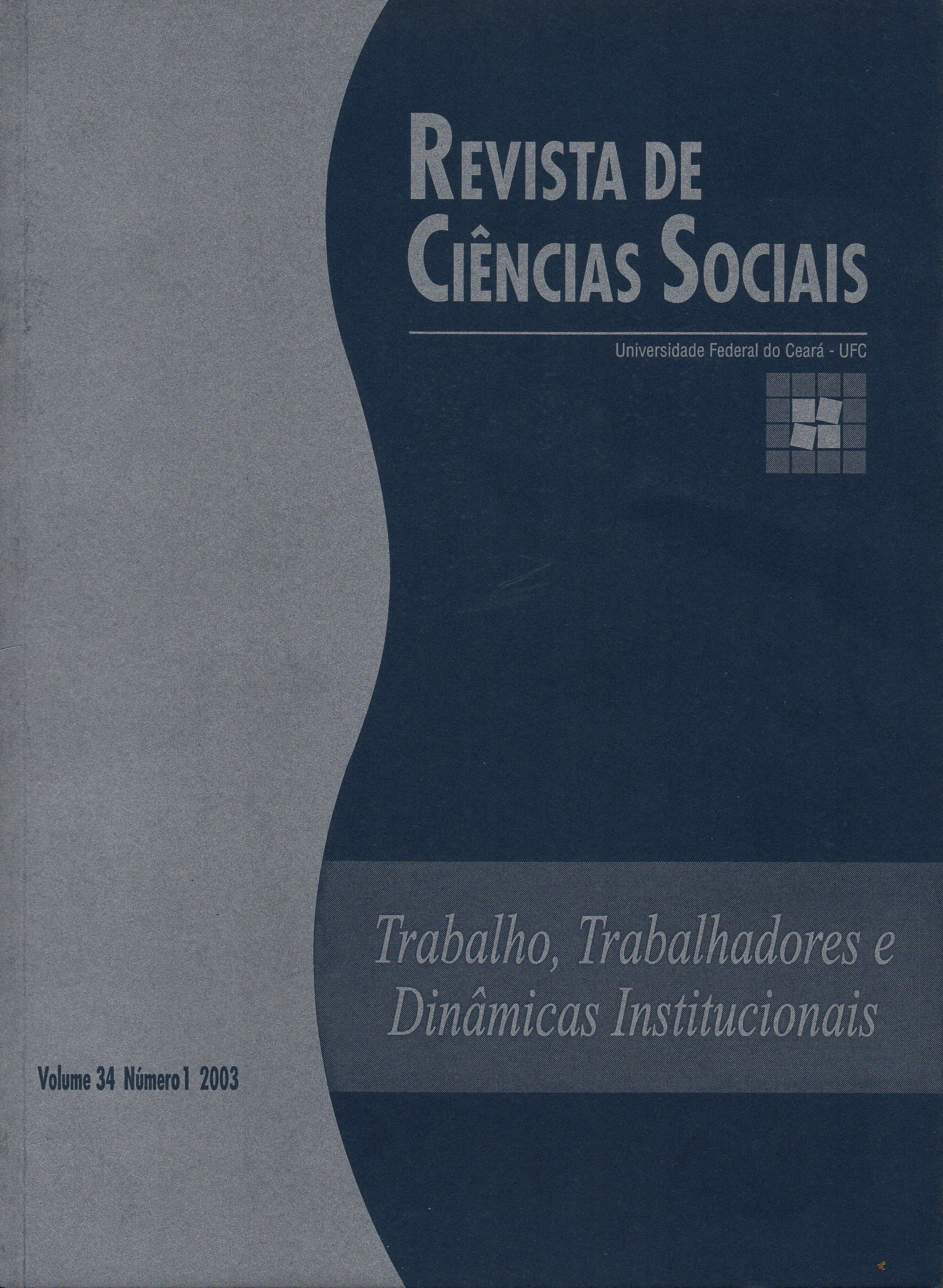THE END OF WORK OR DISENCHANTMENT OF THE INTELLIGENSIA?
Abstract
The article analyzes the main thesis about "The Manifest against Work", that appeared in 2003, of the Krisis' Group. Recognizing the importance of the renewed reflection about the role of the work and of the workers in the society nowadays, the author criticizes the arguments on the end of the work, State and Politics, as well as the anti-political option. This article emphasizes the discussion about the abstract work as social alienation and as about the abstract work as a principle of domination of the social relations. The author considers that more than a radical change of theory, the world today needs to know deeply the social cultural and political characteristics of the world of the work.
References
Grupo Krisis (2003). "Manifesto contra o trabalho". Journal da Crítica Radical: Assim caminha a humanidade e a morte do capitalismo. Edição especial, Fortaleza-CE, 30 de abril de 2003.
Chesnais, François (1996). A mundialização do capital. Brasil, Ed. Xama.
De Oliveira, Francisco (2003). "O enigma de Lula, ruptura ou continuidade", em Revista Margem Esquerda, n. 1, Brasil.
Marx, Karl (1867). O Capital. Tomo I. México: Fondo de Cultura Econômica, cap. 1 e cap. XXVI.
Oliver Costilla, Lucia Fernando (1997). "O Estado perante a mundialização do capital". Revista de Ciências Sociais, v. 28, n. 1/2. Departamento de Ciências Sociais e Filosofia, Centro de Humanidades/UFC. Fortaleza.
Sotelo, Adrían (2003). La reestructuración del mundo del trabajo. Superexplotación y nuevos paradigmas de la organización del trabajo. México: ITACAUniversidad Obrera.
Downloads
Published
How to Cite
Issue
Section
License
Autores que publicam nesta revista concordam com os seguintes termos:- Autores mantém os direitos autorais e concedem à revista o direito de primeira publicação, com o trabalho simultaneamente licenciado sob a Creative Commons Attribution License, que permite o compartilhamento do trabalho com reconhecimento da autoria do trabalho e publicação inicial nesta revista.
- Autores têm autorização para assumir contratos adicionais separadamente, para distribuição não-exclusiva da versão do trabalho publicada nesta revista (ex.: publicar em repositório institucional ou como capítulo de livro), com reconhecimento de autoria e publicação inicial nesta revista.
- Autores têm permissão e são estimulados a publicar e distribuir seu trabalho online (ex.: em repositórios institucionais ou na sua página pessoal) a qualquer ponto antes ou durante o processo editorial, já que isso pode gerar alterações produtivas, bem como aumentar o impacto e a citação do trabalho publicado (Veja O Efeito do Acesso Livre).



